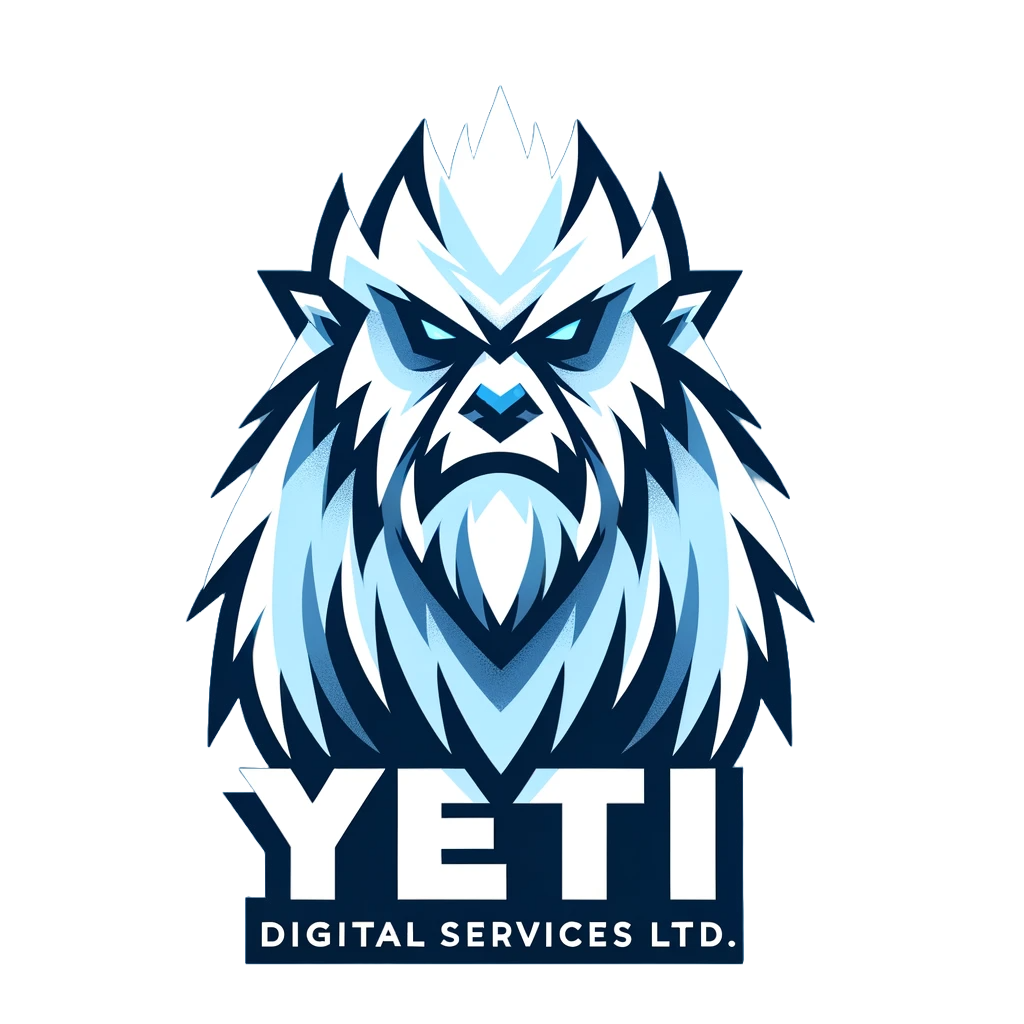Source Context: talk about how AI automation agencies are helping small businesses save money and get good conversions
In today’s rapidly evolving digital landscape, leveraging the capabilities of Artificial Intelligence (AI) and automation is paramount for the growth and success of small businesses. Despite the abundance of AI automation providers in the market, choosing the most suitable one to fulfill your specific requirements can pose a significant challenge.
This comprehensive guide is designed to assist you in evaluating your AI automation needs, conducting thorough research on potential agencies, critically assessing proposals, assembling a proficient team, and ensuring adherence to ethical standards and robust data security protocols. By the conclusion of this discourse, you will possess the necessary insights and tools to expedite your progress in collaboration with the optimal AI automation agency tailored to your business objectives.
Table of Contents
ToggleKey Takeaways:

- Carefully assess your AI automation needs before researching agencies to ensure they can meet your specific business goals and save you money.
- When researching agencies, consider factors such as experience, expertise, and pricing to find the best fit for your business.
- Ensure ethical practices and data security are a top priority for your chosen agency, and set clear milestones and goals to measure success post-implementation.
Understanding the Importance of AI and Automation Agencies
AI and automation agencies have a significant impact on industries like financial services, manufacturing, and retail. They contribute to enhancing customer experience and optimizing operational efficiency through the implementation of advanced AI technologies.
These agencies utilize AI to personalize customer interactions, offer customized recommendations, and elevate overall satisfaction levels. In the manufacturing sector, AI-driven automation simplifies production processes, resulting in improved productivity and cost-saving advantages. Similarly, the retail industry benefits from AI-powered inventory management systems that optimize stock levels minimize instances of out-of-stock products and boost supply chain efficiency. The incorporation of AI in these sectors showcases the immense potential for technological advancements to revolutionize traditional business practices and deliver exceptional outcomes.
Assessing Your AI Automation Needs
Before I consider working with AI automation agencies, I find it crucial to evaluate my business’s automation needs. This evaluation includes assessing predictive AI models, generative AI capabilities, data analysis requirements, and decision-making frameworks.
During this assessment process, I focus on identifying the specific tasks that could benefit from automation and determining the key performance indicators (KPIs) that will be pivotal in measuring the success of AI implementations. By recognizing areas where predictive AI solutions and generative AI technologies can drive efficiencies, I aim to streamline operations and boost productivity.
Incorporating data analysis is integral to this evaluation. It enables my company to derive insights from existing data, predict trends, and make well-informed decisions based on actionable information. By considering these components when assessing AI model requirements, I ensure that my business effectively achieves its operational and strategic objectives.
Researching AI Automation Agencies
When researching AI automation agencies, it is crucial to explore the capabilities of various technologies, such as machine learning algorithms, neural networks, GANs, transformers, and other innovative tools, that have the potential to revolutionize business operations and boost efficiencies.
A fundamental aspect of assessing these agencies involves gaining an understanding of how they harness neural networks to replicate human brain functions, enabling nuanced pattern recognition and decision-making abilities. The incorporation of Generative Adversarial Networks (GANs) for generating synthetic data and optimizing model performance is a significant factor to take into account. Furthermore, examining how these agencies utilize transformer models like BERT or GPT-3 to enhance natural language processing and text generation tasks offers valuable insights into their adoption of state-of-the-art AI solutions.
Factors to Consider in Choosing the Right Agency
When I am choosing the right AI automation agency for my small business, I carefully consider factors such as operational efficiency, customer satisfaction, and tailored automation solutions to guarantee a smooth integration and maximum benefit. Opting for an AI automation agency that comprehends the unique needs of small businesses is crucial.
Advanced technologies like machine learning and natural language processing can greatly enhance operational processes, resulting in increased productivity and cost savings. Moreover, by prioritizing a customer-centric approach, I can ensure that automation solutions not only streamline internal workflows but also enhance the overall customer experience.
I also look for an agency that provides personalized services tailored to my specific industry and requirements, ensuring optimal functionality and return on investment.
Scheduling and Conducting Consultations
In my professional capacity, I am responsible for scheduling and conducting consultations with AI automation agencies, where meetings are arranged to discuss automation solutions, chatbot implementations, scheduling systems, and optimizing customer service processes.
During these consultations, I aim to provide businesses with valuable insights into how AI technologies, particularly chatbots, can streamline operations and enhance customer interactions. Integrating chatbot capabilities into systems enables organizations to offer quicker responses, personalized recommendations, and continuous support, ultimately improving operational efficiency and elevating customer satisfaction levels.
To ensure that consultations are well-organized and conducive to productive discussions on AI implementation strategies, I make use of advanced scheduling tools. By prioritizing the enhancement of customer service experiences, companies can harness the potential of AI to deliver seamless, intuitive interactions that contribute to business growth.
Reviewing and Comparing AI Automation Proposals

When reviewing and comparing AI automation proposals, I thoroughly analyze various components. This includes examining the utilization of synthetic data, predictive models, historical data insights, and innovative solutions put forth by automation agencies to drive business growth and operational improvements.
Incorporating synthetic data into AI proposals provides valuable insights into the functioning of machine learning algorithms across different scenarios. Furthermore, historical data insights play a pivotal role in assessing the effectiveness of proposed AI solutions, offering a glimpse into potential performance outcomes.
The use of predictive models allows decision-makers to anticipate the impact of implementing specific automation technologies. This aids in the decision-making process regarding the selection of the most suitable and effective solutions to meet the organizational requirements.
Key Elements to Evaluate in Proposals
When evaluating AI automation proposals, I prioritize key elements such as the creation of unique content, innovative automation approaches, and the potential for disruptive innovation that can provide competitive advantages for businesses.
It is imperative to thoroughly analyze AI automation proposals to assess how well they demonstrate a profound comprehension of cutting-edge technologies and their seamless integration into existing business processes. These proposals should detail actionable strategies that utilize AI algorithms to improve decision-making, streamline workflows, and enhance overall operational efficiency.
A robust AI automation proposal should exhibit a forward-thinking approach, emphasizing how it aligns with industry trends and anticipates future advancements in AI technology. By incorporating these critical elements, businesses can ensure that their automation initiatives are not only effective but also future-proof and adaptable to changing market dynamics.
Building Your AI Automation Dream Team
In creating my AI automation dream team, I prioritize identifying key roles, defining responsibilities, and assembling a cohesive group of experts to drive AI implementation and automation initiatives within my organization.
Each role within the AI automation team is critical to ensuring the smooth integration of AI technologies into our existing processes. Typically, the team comprises data scientists who analyze and interpret data, machine learning engineers who develop AI system algorithms, project managers who coordinate tasks and timelines, and domain experts who provide industry-specific knowledge.
Effective collaboration among these team members is essential for overcoming challenges and achieving our objectives. By fostering a culture of open communication and knowledge sharing, our AI automation team can harness the diverse skills and perspectives of its members to develop innovative solutions.
Roles and Responsibilities within the Team
In the AI automation team, my roles and responsibilities encompass ethical considerations, bias mitigation strategies, and a commitment to upholding data integrity. These aspects are crucial for ensuring the responsible deployment of AI technologies in our business operations.
One key aspect of ethical AI deployment is the continuous evaluation of potential biases in the algorithms we use. By incorporating diverse perspectives and implementing rigorous testing protocols, our team can strive to build fair and unbiased AI systems.
Maintaining data integrity is fundamental and involves establishing secure data handling practices to protect sensitive information and ensure compliance with relevant data privacy regulations. Ethical practices are the cornerstone of creating reliable and trustworthy AI solutions that benefit both our business and society as a whole.
Evaluating AI Ethics and Security
In assessing AI ethics and security, I conduct thorough evaluations of data practices, ethical frameworks, security protocols, and data analysis methods to guarantee the responsible and secure implementation of AI technologies. This procedure is vital for organizations aiming to preserve customer trust and adhere to regulatory requirements concerning AI utilization. Additionally, it involves analyzing the effects of AI algorithms on privacy, bias mitigation, and transparency in decision-making procedures.
Data integrity plays a critical role in upholding ethical considerations and ensuring the accuracy and representativeness of information utilized for training AI models. Security measures such as encryption and access controls are essential for protecting sensitive data against cyber threats and unauthorized access.
Ensuring Ethical Practices and Data Security
Incorporating ethical practices and prioritizing data security in AI automation is crucial in safeguarding customer data, optimizing personalized marketing strategies, and elevating customer experiences through transparent and ethical AI deployments.
This dedication to maintaining ethical standards and ensuring robust data security is essential for cultivating trust with customers. By emphasizing data privacy and protection, organizations can lay a solid groundwork for personalized marketing campaigns that align with individual preferences. Ethically guided AI automation plays a pivotal role in enriching customer experiences by providing customized solutions that cater to unique requirements and preferences, nurturing enduring relationships founded on trust and dependability.
Setting Milestones and Key Performance Indicators

Establishing milestones and key performance indicators for AI automation initiatives involves delineating measurable objectives, monitoring decision-making processes, and assessing customer satisfaction metrics to ensure the successful integration and acceptance of AI technologies.
These milestones and KPIs are pivotal in directing the advancement of AI automation projects, offering a lucid roadmap for the team to adhere to. By harmonizing goals with the organization’s overarching aims, stakeholders can guarantee that the AI initiatives effectively contribute to the company’s mission. Monitoring decisions made throughout the project enables teams to introspect on their choices, derive lessons from successes and setbacks, and iteratively enhance their approach to AI implementation.
Customer satisfaction metrics serve as a direct gauge of how effectively the AI solutions cater to user requirements and expectations, aiding in propelling improvements and honing strategies for superior outcomes.
Planning for Post-Implementation Success
In preparing for post-implementation success in AI automation, I focus on fostering innovation, enhancing customer experiences, and constantly refining automation strategies to promote long-term business growth and operational excellence.
This endeavor necessitates a strategic approach that goes beyond just implementing initial automation solutions; it involves a dedication to ongoing improvements to meet the evolving needs of the business. Through the utilization of data analytics and monitoring tools, valuable insights can be gathered to optimize AI systems for peak performance.
Cultivating a culture of experimentation and continuous learning within the organization can pave the way for groundbreaking innovations in AI technology. Prioritizing customer feedback and incorporating it into the automation process is crucial for delivering a seamless and personalized customer experience, ultimately driving customer satisfaction and loyalty.
Strategies for Ensuring Long-Term Success
Strategies for ensuring long-term success with AI automation involve optimizing operational efficiency, addressing biases in AI models, and cultivating a culture of continuous improvement to drive sustainable business growth and technological innovation.
Prioritizing efficiency optimization allows businesses to streamline operations, reduce costs, and boost overall productivity. Implementing efforts to mitigate bias in AI models is essential to ensuring fair and ethical decision-making. Cultivating an innovative culture within the organization can stimulate creativity, promote experimentation, and facilitate the creation of cutting-edge solutions.
These strategies not only lay the foundation for sustainable growth but also position companies as leaders in technological advancements in today’s fiercely competitive market.
Accelerating Success with the Right AI Automation Agency
To drive business growth and operational excellence, I believe it’s crucial to partner with the right AI automation agency. This involves utilizing financial profiles, customer data insights, and customized AI solutions.
Collaborating with AI automation agencies allows businesses to efficiently use machine learning algorithms to analyze financial data and make informed, data-driven decisions. By harnessing customer insights through AI technologies, not only can personalization strategies be enhanced, but customer retention rates can also be boosted.
Implementing AI tools tailored to the company’s specific needs has the potential to streamline processes, increase productivity, and foster innovation. By incorporating these strategies, I aim to significantly enhance business performance and establish a competitive edge in today’s rapidly changing market landscape.
Benefits of Choosing the Right Partner
Selecting the appropriate AI automation partner provides advantages such as incorporating chatbots, implementing personalized marketing strategies, and enhancing customer experiences, ultimately resulting in increased operational efficiency and business triumph.
An efficient AI automation partner can assist organizations in optimizing their customer interactions by utilizing automated chatbots, thereby freeing up valuable human resources for more intricate tasks. The utilization of personalized marketing strategies has the potential to significantly enhance customer engagement by delivering customized messages and offerings. Improved customer experiences, facilitated by AI technology, can result in heightened customer satisfaction and loyalty. By leveraging the capabilities of AI in collaboration, businesses can maintain a competitive edge and foster sustainable growth in today’s rapidly evolving business environment.
FAQs about Partnering with AI Automation Agencies
Engaging with AI automation agencies often sparks inquiries about technological advancement, biases in AI models, and the potential impacts on business operations. These concerns can be effectively addressed by developing a comprehensive set of Frequently Asked Questions (FAQs) to provide clarity and insight.
In the realm of AI partnerships, it is imperative to focus on strategies that mitigate biases within AI systems to ensure the delivery of fair and accurate results. Transparency in operational procedures plays a pivotal role in building trust and rapport with stakeholders, underscoring the significance of establishing clear communication channels.
Discussions around innovation frequently center on how AI technologies can optimize efficiency and propel growth, underscoring the importance of selecting an agency that prioritizes cutting-edge solutions. By incorporating these fundamental components into the partnership framework, businesses can adeptly navigate the intricacies of AI integration with assurance and foresight.
Answering Common Questions for Clarity

By addressing common inquiries about AI automation agencies, I aim to deepen comprehension of operational efficiency, metrics for customer satisfaction, and the overall influence of AI technologies on business performance.
AI automation agencies serve as key players in simplifying processes and enhancing productivity across diverse industries. By utilizing artificial intelligence, organizations can realize substantial time and cost efficiencies while effectively catering to their customers’ demands.
The smooth integration of AI technologies not only optimizes operational procedures but also fuels innovation and fosters a competitive edge. Businesses that adopt AI automation stand to benefit from improved decision-making capabilities, customized customer interactions, and sustainable avenues for growth. By leveraging AI solutions, organizations can expect enhanced operational results, heightened scalability, and a robust groundwork for forthcoming achievements in the business realm.
Summarizing the Importance of Selecting the Right AI Automation Agency
When considering the importance of selecting the appropriate AI automation agency, it is crucial to emphasize its impact on personalized marketing strategies, knowledge-based decision-making processes, and the overall business value derived from effective AI implementations.
By choosing an AI automation agency that is aligned with your specific business requirements, you can unleash the potential of targeted customer engagement through personalized marketing campaigns customized to individual preferences. The incorporation of advanced AI technologies enhances decision-making capabilities by providing data-driven insights, predictive analytics, and optimization recommendations that can enhance operational efficiency. A suitable AI partner can assist businesses in streamlining processes, enhancing customer satisfaction, and maintaining a competitive edge in the ever-evolving market landscape.
Frequently Asked Questions
What is the importance of navigating the AI landscape when choosing an automation agency?
With the rise of AI technology, automation is becoming a crucial aspect for businesses to stay competitive. Navigating the AI landscape will ensure that the automation agency you choose is equipped with the latest tools and strategies to maximize your success.
How can an automation agency help small businesses save money?
By implementing AI technology, automation agencies can streamline processes and reduce the need for manual labor, ultimately saving small businesses time and money. This allows businesses to invest their resources in other areas for growth and expansion.
What role does the AI landscape play in getting good conversions for businesses?
The AI landscape offers a wide range of tools and techniques that can help businesses generate more leads and convert them into customers. By understanding and utilizing AI technology, automation agencies can greatly improve conversion rates for their clients.
How does navigating the AI landscape benefit small businesses?
Navigating the AI landscape ensures that small businesses are receiving the most up-to-date and effective automation strategies. This can lead to increased productivity, cost savings, and overall business growth.
What should businesses consider when choosing an automation agency?
Businesses should consider an agency’s experience and expertise in navigating the AI landscape, success rates with previous clients, and pricing and service offerings. It’s important to choose an agency that aligns with your business goals and needs.
Are there any risks involved with employing AI automation in business processes?
While AI automation can greatly benefit businesses, potential risks include data breaches and errors in decision-making. Businesses should work with reputable and experienced automation agencies to minimize these risks and ensure the successful implementation of AI technology.





